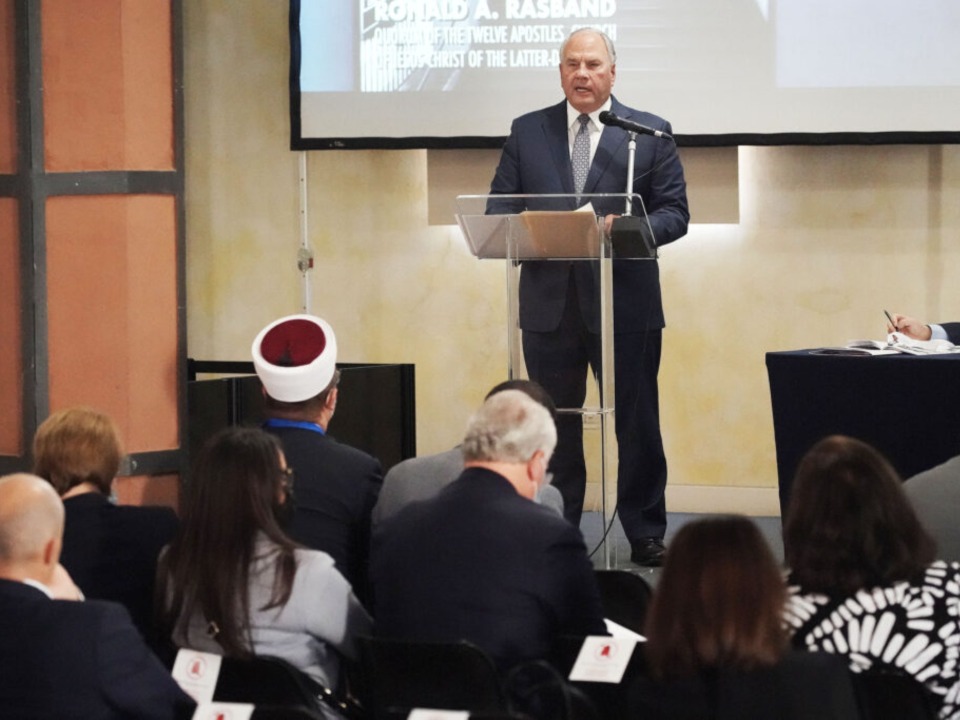
This story appears here courtesy of TheChurchNews.com. It is not for use by other media.
By Sarah Jane Weaver, Church News
As the COVID-19 pandemic continues to pose challenges for public health and private business and as poverty rates continue to rise, Elder Ronald A. Rasband of the Quorum of the Twelve Apostles is calling for elected officials to protect the religious freedoms of faith organizations.
In an op-ed column published today by The Hill, titled “Religion and the G-20: With faith, we can move mountains,” Elder Rasband wrote about participating in the annual G-20 Interfaith Forum in Bologna, Italy.
The forum assembled a host of religious leaders, government officials and experts from nonprofit organizations. Attendees shared an array of viable, sustainable solutions for the world economy that include anchors in faith.
“Rather than banishing religious organizations from the public square or overlooking their potential influence, elected officials should create space for faith-based groups to thrive and contribute,” Elder Rasband wrote. “Religious groups regularly fill the gaps between government and people, where many individuals fall through the cracks of social safety nets.”
Thehill.com is an online news site that focuses on critical national and international issues through the lens of America’s Capitol.
Elder Rasband wrote that religion encourages human beings to reach out beyond themselves and serve, help and ennoble their fellow man.
“Governments can’t solve human ills; people solve human ills. One of the principal values of religion and religious beliefs is that both tend to result in more caring, more compassion and more desire to alleviate human suffering.”
Faith organizations can inspire their people and offer these solutions only if their religious freedoms are protected, said Elder Rasband.
“G-20 political leaders looking to boost international economies and opportunities for all the people of the world should include religious leaders and organizations for solutions to eradicate poverty, nurture upward mobility, heal human suffering and foster more vibrant, inclusive communities and countries,” he wrote. “Faith in a better economic outlook for the world begins by acknowledging and embracing the economics of faith in the world.”
Copyright 2021 Deseret News Publishing Company